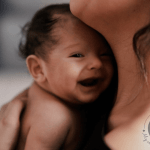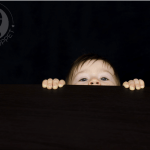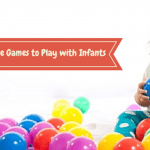Published: April 7, 2023 | Last Updated on: April 7, 2023 | by Hema
Understanding the developmental milestones of infants is important when tracking your baby’s growth and making sure he’s on the right track!
Jump To hide Your Baby’s Development: Understanding Developmental Milestones of Infants 1-2 Months Physical Development Milestones Cognitive Milestones Emotional Milestones Language Milestones 3-4 Months Physical Development Milestones Cognitive Milestones Language Milestones Emotional Milestones 5-6 Months Physical Development Milestones Cognitive Milestones Language Milestones Emotional Milestones 7-8 Months Physical Development Milestones Cognitive Milestones Language Milestones Emotional Milestones 9-10 Months Physical Development Milestones Cognitive Milestones Language Milestones Emotional Milestones 11-12 Months Physical Development Milestones Cognitive Milestones Language Milestones Emotional Milestones 15 Months Physical Development Milestones Cognitive Milestones Language Milestones Emotional Milestones 18 Months Physical Development Milestones Cognitive Milestones Language Milestones Emotional Milestones 24 Months Physical Development Milestones Cognitive Milestones Language Milestones Emotional Milestones What Parents can do to encourage Babies When should you see the doctor? References: Buy Healthy Nutritious Baby, Toddler food made by our own Doctor Mom !We parents are an impatient lot – as soon as we realize we’re pregnant, we can’t wait to meet our baby. Once the baby arrives, we’re in a hurry to hear they say ‘Mama’, to smile, to walk and so on!
Yet, it’s a good thing that we’re a tad obsessed about these things, because developmental milestones of infants are important and need to be tracked. Milestones are the developmental achievements a child gains as he reaches a specific age. Milestones are broadly classified into these four categories:
- Physical development – These relate to motor skills & movement like rolling over, sitting, standing, walking
- Cognitive development – These relate to brain-related tasks like learning and problem-solving
- Language development – This relates to communication like responding to speech and making sounds
- Emotional development – This relates to emotional regulation and social skills
It is estimated that a child’s brain develops the most during the first 1,000 days of life, which is before 3 years of age. 80% of brain development is complete by this time, after which it slows down. This is why this period is the most crucial in terms of a child’s growth and development.
That said, it is important to remember that no two babies will grow and develop at the same pace. Every baby has his or her own schedule for achieving these milestones, and we can only put forth a broad age range during which these milestones are achieved. Some babies may also skip a few steps like rolling or crawling, or do things in a different order.
There are many factors that affect the rate at which a child achieves their milestones, genetics being one of them. Another important consideration is prematurity – a baby born before 37 weeks of gestation will have an entirely different milestone schedule for preemies, which will be based on her original due date and not on the actual date of birth.
The main reason we follow our baby’s milestones is to identify any delays and to make sure our babies are on the right track. As mentioned earlier, please remember that these are only guidelines, and not to be stressed about.
Your Baby’s Development: Understanding Developmental Milestones of Infants
1-2 Months
Physical Development Milestones
- Moves head side to side
- Moves arms and legs when lying on back
- Brings hands near face
- Holds hands in tight fists, opens occasionally
- Holds head up a little when resting on tummy
- Grasps on to parent’s finger
Cognitive Milestones
- Turns head toward light sources
- Shows preference for high contrast or black-and-white images
- Stares at faces or objects 8 to 12 inches away from the face
- Follows a moving toy or object with the eyes
- Turns head towards sounds
- Gets fussy when bored
Emotional Milestones
- Prefers human faces over other objects or images
- Turns head to look at parents
- Recognizes parents’ faces and voices
- Looks closer at recognizable faces
- Appears happy when talked to
- Calms down on picking up
- Can self-soothe by sucking the thumb or bringing hand to mouth
- Begins to smile at people
Language Milestones
- Makes cooing and gurgling sounds
- Responds when talked to
3-4 Months
Physical Development Milestones
- Holds head steady without support
- Kicks legs vigorously when lying on back
- Raises head and chest when lying on tummy
- Does mini push-ups, supporting on forearms
- Opens and shuts hands
- Grabs toys and shakes them
- Swipes at hanging objects
- Pushes down with legs when feet are on a firm surface
Cognitive Milestones
- Opens mouth on seeing breast or bottle
- Observes hands and brings to the mouth
- Recognizes family members from a distance
- Tries to grab toys with one hand
- Displays emotions of being happy or sad
- Responds well to affection
Language Milestones
- Makes cooing sounds when being talked to
- Babbles to respond to speech
- Smiles and laughs
- Identifies parent’s voice
- Has different cries to communicate different needs
Emotional Milestones
- Smiles on recognizing parents’ voices
- Observes people’s faces
- Enjoys playing and cries when it stops
- Imitates facial expressions
- Makes movements to get attention
5-6 Months
Physical Development Milestones
- Rolls over from tummy to back and vice versa
- Pushes up entire upper body with straight arms when on tummy
- Uses hands to support the body while sitting
- Rocks to and fro when in a seated position
- Supports body weight entirely on legs when feet are on a firm surface
- Shows signs of readiness for solid foods
Cognitive Milestones
- Starts exploring objects by putting in the mouth
- Reaches out to grab objects of interest
- Turns head toward new sounds
- Amuses himself by playing with hands and feet
- Distinguishes between bright colors
- Rejects food by closing mouth
Language Milestones
- Makes squealing sounds with vowels
- Blows bubbles or ‘raspberries’, sticking the tongue out
- Responds to being spoken to by making sounds
- Imitates certain sounds
- Uses sounds to show positive and negative feelings
Emotional Milestones
- Distinguishes between familiar people and strangers
- Laughs when happy
- Enjoys looking in the mirror
- Likes playing with familiar people
- Responds to emotions in other people
7-8 Months
Physical Development Milestones
- Sits without support
- Passes objects from one hand to the other
- Can see all colors and objects at a distance
- Starts to crawl to move forward
Cognitive Milestones
- Explores objects with both the hands and the mouth
- Makes an effort to grab objects that are out of reach
Language Milestones
- Understands and responds to her name
- Changes tone of voice to show different emotions
- Starts babbling a sequence of consonants like ‘baba’, ‘dada’ or ‘mama’
- Calls both parents by a combination of sounds
Emotional Milestones
- Understands change in emotion by tone of voice
- Enjoys playing peek-a-boo
- Babbles and make sounds at mirror images
9-10 Months
Physical Development Milestones
- Can move into a sitting position independently
- Crawls fairly well
- Can pull self up to stand, holding onto something
- Lowers body slowly with support
- Can pick things up with the pincer grasp, i.e. with the thumb and index finger
- Uses fingers to move food in raking motions
Cognitive Milestones
- Bangs two objects together
- Looks for hidden objects
- Drops things and watches them as they fall
- Smoothly transfers objects from one hand to the other multiple times
Language Milestones
- Combines consonants to make sounds like ‘mamamama’ or ‘babababa’
- Has different sounds for each parent
- Responds when own name is called
- Understands the meaning of ‘no’
- Imitates sounds and gestures
- Points to distant objects with fingers
Emotional Milestones
- Lifts arms to be carried
- Shows fear around strangers
- Clings to familiar people
- Has favorites among toys
- Enjoys playing games like peek-a-boo
- Gets upset when a parent leaves the room
11-12 Months
Physical Development Milestones
- Cruises, or walks while holding onto furniture
- Stands without support for a few seconds
- Takes a step or two independently
- Lowers into a sitting position easily
- Drinks from a cup without a lid
Cognitive Milestones
- Puts things into containers and empties them
- Finds hidden objects
- Identifies objects when named
- Plays with objects in multiple ways like banging, shaking or throwing
- Uses everyday objects like cups, hair brushes correctly
- Understands simple instructions
Language Milestones
- Has specific names for each parent
- Says ‘oh-oh’ and other exclamations
- Shakes head to say ‘no’
- Waves ‘bye-bye’
- Babbles in different tones that sounds like words
- Tries to say words
- Repeats sounds to catch attention
Emotional Milestones
- Plays games like pat-a-cake
- Brings a book to hear a story
- Shows fear in certain situations
- Helps with getting dressed by putting forth an arm or leg
15 Months
Physical Development Milestones
- Takes a few steps independently
- Uses fingers for self-feeding
- Squats to pick up something from the floor and stands up
Cognitive Milestones
- Can stack at least two objects
- Enjoys breaking stacks or upending piles
- Scribbles on paper using crayons
Language Milestones
- Has specific sounds for objects like ball or dog
- Understands instructions through gestures, like giving something when holding out a hand
- Points to things if needed
- Looks at objects or people when named
Emotional Milestones
- Claps when happy or excited
- Hugs dolls or stuffed animals
- Shows affection to people through hugs and kisses
- Imitates other children, especially siblings
18 Months
Physical Development Milestones
- Walks at a medium pace without support
- Climbs on and off a chair independently
- Can climb stairs one step at a time
- Pulls toys while walking
- Tries to kick a ball
- Attempts to use a spoon
Cognitive Milestones
- Identifies some body parts
- Plays with toys like pushing cars, stacking blocks
- Engages in pretend play like feeding a doll
- Imitates adults, like sweeping or dusting
Language Milestones
- Says at least three words besides ‘mama’ and ‘dada’
- Points to objects and may make sounds to indicate they are needed
- Makes sounds while playing with a book
Emotional Milestones
- Plays independently, but checks to ensure someone is near
- Is still fearful of strangers and clings to family members
- Puts out hands to be washed
- Enjoys handing things to people
- Points to show something interesting
- Looks more interested in images in books
- Starts throwing tantrums
24 Months
Physical Development Milestones
- Runs fairly steadily
- Kicks and throws a ball overhead
- Carries many toys while walking
- Walks up and down stairs with support
- Eats with a spoon
Cognitive Milestones
- Plays with multiple toys at one time
- Uses one hand while holding something in the other
- Uses buttons, switches and knobs on toys and doors
- Builds a tower of four blocks
- Sorts objects by color
- Draws lines and circles with crayons
- Searches for hidden objects under multiple layers
- Can anticipate what’s coming next in familiar books
- Shows a preference for a dominant side
Language Milestones
- Has a vocabulary of several words
- Puts two words together like ‘more soup’
- Repeats words heard frequently
- Points to objects in a book when asked
- Identifies at least two body parts
- Uses gestures like nodding or flying kisses
Emotional Milestones
- Understands emotions in other people
- Looks at a parent’s face in a new situation
- Likes doing things independently
- Copies other children and adults
- Enjoys playing with children
- Follows two-step instructions easily
What Parents can do to encourage Babies
- Talk and sing to your baby in your language of choice
- Respond to baby when he makes sounds, encouraging him to understand conversation
- Read to baby every day, even if they’re too little to understand the words
- Point out objects in real life or in books and name them
- Show baby simple gestures like waving, clapping, shaking and blowing a kiss
- Play simple games like peek-a-boo and pat-a-cake
- Childproof your home so your baby has a safe environment to learn and explore
- Provide simple, age-appropriate toys like blocks, stacking rings, containers or a doll
- Place toys around the baby so she can reach out for them
- Encourage self-feeding by giving her another spoon to experiment
- Take baby outdoors and talk about what you see
- Encourage independence by letting them choose their clothes or packing their bag
When should you see the doctor?
An easy way to track developmental milestones of infants is by using an app like the CDC’s Milestone Tracker App. While every child will reach their milestones on their own time, you can check if there are any signs of delay. Here are a few things to watch out for at every age.
By 2 months:
- Does not respond to loud sounds
- Doesn’t follow people or objects with eyes
- Cannot bring hands to the mouth
- Doesn’t smile at people
- Cannot hold the head up while on tummy
By 4 months:
- Can’t hold head steady
- Has trouble moving one or both eyes in a different direction
- Doesn’t making cooing or gurgling sounds
- Can’t push down on legs when feet are placed on a firm surface
- Doesn’t bring things to the mouth
By 6 months:
- Does not roll over in any direction
- Makes no effort to reach out for nearby objects
- Doesn’t laugh or make any vowel sounds
- Seems either very stiff or very floppy
- Shows no affection for parents or family members
By 9 Months:
- Cannot sit without support
- Doesn’t babble
- Cannot recognize familiar faces
- Doesn’t respond to own name
- Doesn’t look at anything that is pointed to
- Cannot transfer objects from one hand to the other
- Has trouble with games involving back-and-forth play
By 1 year:
- Does not crawl
- Cannot stand without support
- Doesn’t say simple words like ‘mama’ or ‘dada’
- Does not wave, clap or shake the head
- Doesn’t search for hidden objects
- Does not point to objects
- Loses existing skills
By 18 months:
- Can’t walk
- Says fewer than six words
- Doesn’t try to imitate others
- Does not seem to notice a parent leaving the room
- Loses existing skills
By 2 years:
- Cannot put two words together
- Doesn’t walk in a steady manner
- Cannot use everyday objects like a cup or brush
- Does not imitate actions or words
- Cannot follow basic instructions
- Loses existing skills
If you notice any of these signs at the specified age, it’s best to go to your child’s doctor right away. The good news is that the earlier a developmental delay is diagnosed, the faster you can act and help your child deal with the problem.
References:
Buy Healthy Nutritious Baby, Toddler food made by our own Doctor Mom !
Shop now!You may also like
- Developmental Milestones for Premature Babies

- Understanding and Treating Urinary Tract Infections in…

- Warning Signs of a Physical Developmental Delay in Your Baby…

- How a baby growing up in a joint family affects their…

- Everything You Need To Know About Zinc Drops for Infants

- 10 creative games to play with infants

Filed Under: Milestones Tagged With: Baby Development, baby milestones, milestones
